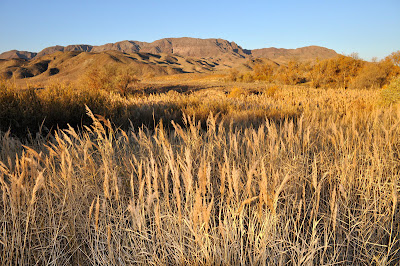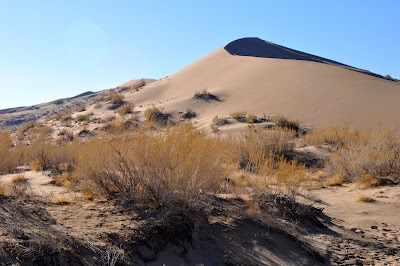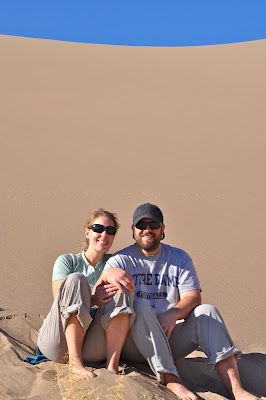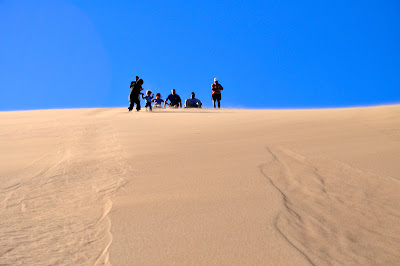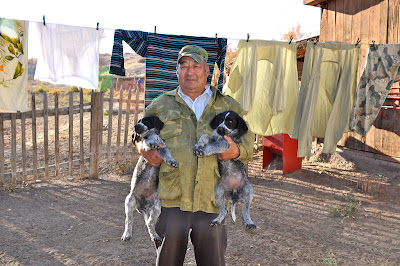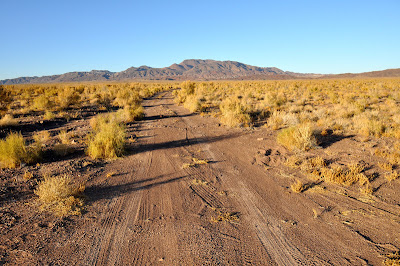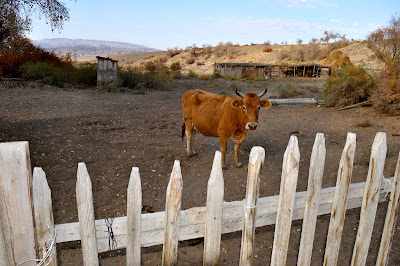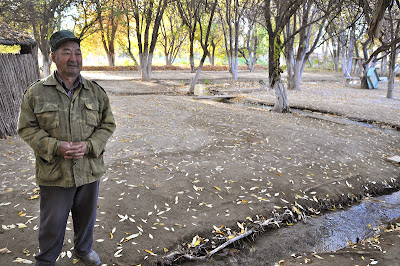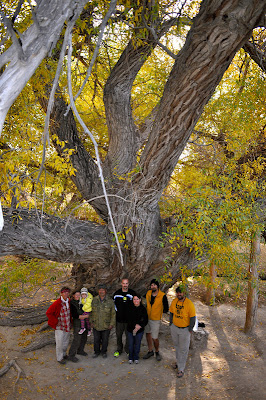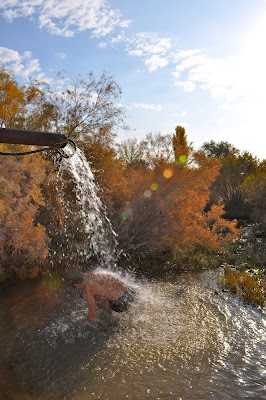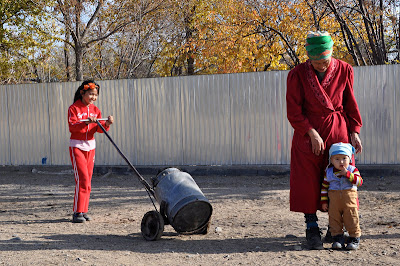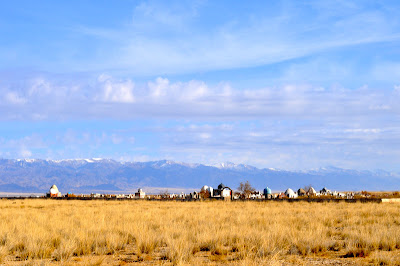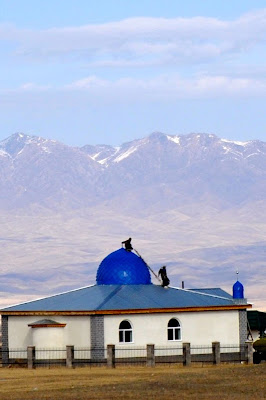Please check out our "extension" blog at: thecentraladventurecontinues.blogspot.com.
The Central Adventure
January 5, 2013
November 18, 2012
More Green Bazaar
As I mentioned in my last post, I love the Green Bazaar. I'm becoming more bold with my camera, and liking the results. Here are just a few snapshots from today.
This babushka is out every weekend with her dried fruits.
This guy was out last weekend, which was the first time we saw him. He's selling honey from his trunk.
We "discovered" a new aisle in the market last week (it's not new of course, we have just been overlooking it) and have a new fascination for it's products. We'd seen new meat products when we went through last weekend, but this weekend we were offered samples, which we happily accepted. Most of the meat products (aside from the packaged sausages in front) are horse. We sampled a few different kinds of smoked and cured kinds, many similar to jerky. The pink things on the left are a horse jerky with a 1/4 inch thick coating of some crumbly concoction. I asked if it was salt, and she said no, and explained what it was. The only words I recognized from her description were "natural" and "grape". Whatever it was is was peppery and quite good. We bought some uncoated jerky to eat for lunch during our upcoming ski trip.
Beef sellers don't usually have ground beef on hand, but there is a grinder somewhere in the market as we discovered last year when we asked for ground beef. We chose a cut, the man pieced it and carried it away from his stall, off the main floor of the market, and came back with it ground. We were asking this man for the same thing (and we know the word for 'ground'), but this guy was not working with us. After a few attempts of communication, when we thought we'd finally gotten through, he pieced our meat, put it in a bag, and handed it to us. However, as a result, I discovered I can use our food processor to make something similar to ground beef.
November 11, 2012
Big Almaty Lake and More Green Bazaar
Since arrival last year we've heard about Big Almaty Lake. We've heard how beautiful it was (and indeed, we had seen pictures of it), how sometimes it was guarded by police, how it is Almaty's water source, how last year it was losing water and no one knew why, how it is sometimes closed, etc. We never made it there last year, and we had one failed attempt earlier this year (we missed the turn, but someone told us it was closed anyway - or so we inferred by the man making an "x" with his arms). So, it was the last Saturday of break and a beautiful day with rain forecasted for Sunday, so we decided to give it another shot. We took the correct turn this time, and climbed the narrow and hair-pin-turned road through the pine trees only to meet a gate. I asked the guard how far to the lake and mistakenly heard 5,000 km, but he corrected me and said, "No, 5! 5!" (Stupid Americans). So, we parked the car and grab the picnic we packed and climbed underneath the gate, right past the guards and began walking.
We thought it strange that we could walk, but not drive, but there are many things we don't understand in Kazakhstan, so we let it go. A few minutes later, the gate was opened for a dump truck full of gravel. We tried to wave him down for a ride, but he only gave us a shoulder shrug. We didn't think too much of the dump truck being let through. About 5 minutes after that, however, we had an SUV with a couple 20-somethings with music blasting zoom past us. "They must have bribed the guards", we told ourselves, and commented on the nice day and how clean the air was up here, and how good we were for not helping corrupt the system by offering a bribe ourselves. A few minutes later, another car passed us. We again reminded ourselves how nice it was to get some exercise. By the time we reached the lake, there had been at last 10 cars that passed us. We were a bit annoyed, but when we saw the lake, we were eased.
We enjoyed our picnic on the shore, and only had about 30 minutes before the sun sank behind the large mountains around the lake's shore.
With the sun down, the water took an entirely different color, a glossy ice blue. It also brought a new nip to the air. We packed up and walked back down the road. When we reached our car, the gate was wide open and the authorities were no where to be seen. At least we got some clean air and exercise on a nice day.
*********************
If I haven't told you lately, I love the Green Bazaar. Our trip to the market is the highlight of my week. I love everything about it: the parking guys who help us park, the junk sellers on the sidewalk always have an assortment of treasures, the faces of shoppers and vendors, the smells of fresh baked breads and pastries, the tea and pastry ladies with their carts in the aisle, the light streaming through the windows, samples at the Korean salad aisle, the colors and textures of fruits and vegetable, finding what's new in the produce (today I saw kumquats!), but maybe most of all I love our interactions with the people there. In a city as large as Almaty it's not just the language barrier that can separate us. There are 1.3 million people walking around. It's nice to see a familiar face, a smile, and exchange a few words.
We know the market well enough now that we can look at our shopping list and map our route through the market. First, it's upstairs inside to our spice lady, our pork lady (stall 24), our lagman (fresh noodles) lady and honey (we don't have lady for that yet). Then we head downstairs and outside for root vegetables, citrus and other veggies. We hit up our spinach and cilantro lady (who always give us a deal) and our lemon guy (who we really don't like all that much, but they have the cheapest lemons). If we need to, we stop at our sundries lady for sugar, beans, rice, etc. Then it's back inside but downstairs for a stop at our egg lady (although now she reroutes us to her daughter's new shop in the next stall over) and down the cheese aisle for samples. We haven't committed to a cheese lady yet, although we're narrowing down the candidates. Even if we don't need dried fruit or nuts, we swing by and say hello to our dried fruit and nut guy. He usually sees us coming down the aisle and raises his hands as if in gratitude to God and immediately begins rattling to us in Russian. He shakes Nic's hand and offers us tastes of his bounty, continually speaking to us in a language we don't understand. Once we escape him (still talking to us as we're walking away), it's a stop by the mushroom lady to pick a bowl of mushrooms, swing by the ginger lady (who is not friendly at all) and we're back outside on our way to the car.
Today's junk treasures were brought to us by this sweet and happy lady. She had 2 hand-knit hats for sale, as well as a few other household items. Nic got the yellow and brown one with the fancy lining and matching brown and yellow scarf, and I got a hot pink one with light pink designs. This lady was so pleased when Nic tried on the hat, she laughed and laughed. We told her we were teachers, and I think she said she was a teacher as well. Both our hats, plus the scarf were $6.
There is no shortage of Soviet era paraphernalia...pins, belt buckles, helmets, packs, money, etc.
Nic can't resist the junk.
Our pork lady, stall 24. She asked us which state we were from. I can say "near California" and most people nod to that. She and what must be her husband work together and are very kind and patient.
The Korean salad ladies looking a little bored. Don't worry, ladies, Nic is on the way.
Our honey lady for the day. The problem with honey is that we only buy it once a month or less, so we don't get a lot of face time with these ladies. But this one gave us her business card, which is the sign of a grateful business owner. I think she'd make a fine honey lady.
Down the honey aisle.
This bakery is right at the bottom of the stairs we take to get outside. I've always wanted to snap a picture of all the goodies laid out in the window. This young guy was working today (usually it's an old guy who seems very concentrated on his work), so I asked him if I could photograph him. He nodded and even posed (yes, that's posing).
November 2, 2012
Fertility Trees, Happy Mountains, Singing Sand Dunes and Serendipity
Judy, one of the 6 year old teachers last year once said something about how every time we leave the city, there's an adventure. By experience, I believe her words to be true. This trip turned out to be chocked full of adventures, and as most great adventures go, few of them were planned.
For Fall Break we decided to stay in Kazakhstan and get to know our host country a little better. Last spring, some teachers had gone to a national park north of Almaty called Altyn Emel and gave great reviews. Nic and I invited Viktor, our outdoorsy local friend to come along with us and act as guide and translator. Our friends Brandon and Michelle, and John and Nina with their 3 year old daughter Sadie also joined us.
It's about a 300 km drive from Almaty, but the scenery was vast and grand at once, and the colors of Fall had settled into every fiber.
Once we arrived in the village of Basshi we had to go the park offices. We had decided ourselves that we wanted to camp in the park for three nights and visit the three areas of the eastern half of the park: Signing Sand Dunes, the Katutau Mountains and the Aktau Mountains. The manager couldn't be bothered to come to the office, so he sent one of his buddies as proxy. It took about 20 minutes of negotiation (Where will we go? We should stay in a hotel .What will you do this day? You don't want to stay in the a hotel? No driving after 6 p.m.. Should I show you the hotel? It will be cold at night. Do you want to stay in a hotel?) in an office to finally get our permit and be on our way.
At our first check point: A locked gate at someone's house along the road into the park. They had the skeleton of a banya and right next to it an empty swimming pool. We all dreamed of running from the banya to the cold swimming pool and jumping in on a chilly Fall day on the steppe.

Our stomachs beginning to growl, we drove and drove in hopes of finding a stand of trees to lunch under. We had no such luck in this environment, so we had the first of many picnics on the steppe with the sticker plants and dust.
Kilometers and kilometers of wide open steppe, framed by freshly snow-capped mountains.
The second checkpoint on the road to our first stop, the Singing Sand Dunes. Nic, Viktor and I were able to move along the washboard road a bit faster in our Subaru than our friends in their VW Golfs. As we approached the gate, Viktor said he didn't want to talk to the ranger, that we should just drive through. We told him we should wait for the others, as we have the permit. We stopped and got out to pet the dogs and admire the view while our friends caught up. Viktor chatted with the ranger briefly until everyone was together again.
Another 10 kilometers and we had arrived at the Singing Sand Dunes. Over 100 meters tall and 3 km long, these dunes have the right conditions (grain shape and size in conjunction with very low humidity) for singing! Although we've read that the wind can make them sing, and although it was quite windy, we didn't hear anything.


A steadfast beetle has a long journey ahead.
A steadfast Nic shows excellent bear-crawl technique.
Looking north.
It turns out the dunes just needed a little coercing to sing. When we slid down on our butts, a hum began to radiate around us, and we could feel vibrations bouncing around in the dune.
John, Nic and Brandon on the way down.
We learned later the reason why Viktor did not want to stop and talk with the ranger at the last checkpoint. We were required to camp there, in the ranger's yard, but Viktor did not want to, and he didn't fill us in on his plan. So upon leaving the sand dunes, he presented us with the option of camping elsewhere. We were unsure of the risk of not camping where we were supposed to, but Viktor felt okay about it.
We found an established picnic spot in a stand of trees with a spring nearby and set up camp. We made it through the night without a ranger visit, and woke to a beautiful sunrise against colorful mountains.
Just as we were packing up the cars in the morning, the ranger came riding on his motorcycle and stopped in the middle of camp. It was a long conversation, and he sounded upset, but in the end Viktor only said that we were not supposed to be burning a certain type of wood called saksul (more on this later). So, Viktor told him that we would stay in a hotel that night (which of the two he did not specify, knowing that the ranger would not call in and check) and he told us, essentially, it didn't matter what we did, as long as we weren't in his territory.
With that, we went one more time to the dunes to play.
Thanks to Brandon and his mad jump-snapping skills.
The crew, standing at the ready before sliding and running down, hoping for some noise.
After the final song, we emptied the sand from our pockets dug it out of our eyes and promptly left the territory.
There are few roads in the park, and although our next destination was directly east, we had to back track north to the main entrance and then cut southeast. We passed through two villages before we were out on the open steppe again.
Some kilometers later we stopped in a dilapidated village, or an unofficial village, as Viktor called it, called Korgan. We passed a number of ruined houses on our way into the village. Viktor explained that the village was once much bigger, a legitimate village, during the Soviet era. Once Kazakhstan became independent, all park officials (who were assumed to be ethnically Russian) were replaced with Kazakhs. Viktor proposed that many families left because of nationalism, that the new Kazakh authorities were making it difficult for the Russian families. However five families remain, plus a single Kazakh man, Abul Kasem, who is a ranger. But, the reason we stopped in this village at all is because there is a willow tree that is said to be 700 years old. The tree is at the ranger's house, and is incredible.
Abul Kasem and Nicolai, another ranger, step back and watch as we Americans roam around his property.
This place was a homesteader's dream and had everything one would need to survive.
There was a spring running from the base of the tree that snaked through Abulkasem's yard. Nic takes the opportunity to wash some sand from behind his ears.
Nicolai and Abul Kasem check on the cows and admire the landscape.
This was one of the most mellow cats I've met. He didn't mind one bit as Sadie 'held' him, and he kept his cool once the puppies were released.
Abul Kasem and puppies!
Huge branches from the main tree had fallen years ago, but put down roots and formed new trees all around the yard. Nic carries water bottles just filled in the spring back to the car.
Back on the road to our next destination: the Katutau Mountains. In Kazakh katutau means happy. Viktor never told us exactly what was at the end of the road, but was very anxious to get there and show us. He told us it was 5 km up this road, but the road got rough around km 3.5, so we decided to turn around. It's a good thing we did, because Brandon's car had begun to overheat. To Viktor's disappointment, we decided to camp there and try again in the morning.
It was full moons while we were at the park. The moon rose early, lit the night, and set late. This the moon-set over distant mountains first thing in the morning.
We decided we would pack up camp and walk the final 2.5 kilometers to the Happy Mountains. After that, we'd check on Brandon's car and give it another shot towards our next destination, the Aktau Mountains.
This is saksul, the wood I mentioned earlier. It grows in a bush and produces dense wood that burns hot. Saksul is in Kazakhstan's Red Book, which lists threatened and/or endangered species. There is some irony in all this because sasksul wood is frequently sold in markets and along highways as firewood. More than that, every shashlyk stand in the country (and they are countless) uses saksul wood to make coals for roasting the meat. We even saw it sold in boxes at a gas station; manufactured saksul. When we asked Viktor about this, and why authorities didn't control the harvesting of it, he said "You can't stop capitalism".
The surprise at the end of the road: a potholed and pock-marked mound of purple-red sandstone, intricately carved by eons of wind and sand, and water.
The Clam Shell.
We jumped back into the cars and headed downhill towards the road that would lead us the the Aktau Mountains. Less than 5 km later on a downhill stretch, Brandon's car was overheating again. We let it cool down and tried going again, but again it overheated. Brandon and John look at the engine while John has a stow-away in his pocket, one of Sadie's babies.
And so we formed a new plan. We abandoned the Aktau Mountains and decided we would get the car back to Korgan, where we hoped there would be a mechanic. At 2:45, after already having been stopped from some time, Nic, Viktor and I went ahead to check in at Korgan. Brandon and the rest of the crew said they would drive and cool, drive and cool, as much as they could in the time it took us to get to Korgan and back to them. Upon arrival in Korgan, we learned the Nicolai is a mechanic, but he is out waiting for the park Higher-Ups to come for an inspection (they were supposed to come yesterday). If we could get the car to him, he could look at it. Abul Kasem said we could camp in his yard.
When we returned back to our friends, there were still 20 some kilometers left to get to the village. Brandon could only drive about 5 kilometers at a time, and then wait for 15 or 20 minutes for it to cool again. With daylight dwindling the men decided to get some exercise and push the car along the dirt road.
Sideways sunlight over salty soil.
Another beautiful moonrise just before the final push to the village.
When we pulled up to Nicolai's house, he still wasn't there. We searched for Abul Kasem and he gave us the keys to his house and invited us to stay with him for the night. After a few minutes, Nicolai rolled up on his motorcycle with sidecar and a gang of dogs at his wheels. He immediately opened the hood to the car. He discovered there was a rock jammed in the belt that is connected to the water pump, hence the overheating. Since the belt was thrashed, he made (yes made) another one and then adjusted some other pieces around it so it fit properly. There is no electricity in Korgan, but Nicolai switched on his diesel generator to power his workshop.
While a few of us went to Abul Kasem's to set up things there, everyone back at Nicolai's were invited in for fresh fish soup and vodka once the car was repaired (when Brandon offered the pay Nicolai, he flatly refused, but instead said that they could write a letter to the park authorities telling then that Nicolai was helpful). I wasn't there, but Nic said they had a great time sharing a meal with Nicolai and his family. In Abul Kasem's house, we sat quietly in the candle light, enjoying the warmth of the wood stove and preparing dinner on it.
The spring-fed pond at Abul Kasem's.
He showed us his garden, now nearly bare, and dug up a big turnip and gave one to each family. I asked him about pumpkins, and he motioned for me to follow him to his storage shed. There he swiftly carried out a big pumpkin for each of us.
Looking into the bedroom in Abul Kasem's house.
The dining room.
Happy cows behind the wooden fence. They are happy to see the big pile of hay next to their barn that will feed them through the winter.
An outdoor oven and pumpkin seeds drying.
Abul Kasem told us about the village. He said that no one needs money there, that it is a complexly self-sustaining community. One person makes bread, another butter, Nicolai is the mechanic, etc. When I asked him if they trade for goods or services, he shook his head. The families just share with each other and take care of each other. Abul Kasem's wife died some years ago. He said that at one point he brought another woman to Korgan, but she had to go because she tried to trade and sell goods.
He told us to hug the tree for fertility. He told us that when he moved in, he began to cut and burn lower branches near the house, but then bad things started to happen. His storage shed caught fire, and a few other things. He said after that, he left the tree alone. He's not the only one who believes the tree can help them. There were a dozen or more scarves tied around branches of the tree, a way to make a wish by those visiting.
It took 7 of them to get around the tree.
We left a few chocolate bars and other food for Abul Kasem and said goodbye. He told us to come back and visit sometime, and we plan to in the spring.
In the middle of the village is another spring whose water is 90 degrees, just right for a mid-morning splash before the long drive home.
Approaching another of the villages in the park.
This family is out to collect water from the spring. The woman was more than happy to let me take some photos of her little boy, while the girl smiled shyly and stayed out of the frame.
This man was their neighbor. I had to get out of the car for this portrait. He willingly smiled for some photos, laughing and speaking to me in Kazakh. When I showed him the photos, he laughed hardily and slapped me on the back.
Back on pavement, and almost to the highway.
Friendly locals pass us on our pee break.
Muslim cemetery.
The loneliest bus stop.
Back on the highway and 300 kilometers to Almaty.
Lovely mountains and huge rolls of hay tucked into a nook in the rolling hills.
The pass turned out to be too much for Brandon's car. But this time it wasn't the temperature but the oil pressure. Still quite far from home, they decided to leave the car in this small village off the highway and squeeze in with us, knowing that the school mechanics can help him get his car back to the shop.
While men repaired the blue onion dome of the village mosque, a few locals came to talk with us. They told us about the damage hurricane Sandy had done to New Jersey and New York and about the death toll. Viktor advised us not to tell anyone in the village that the car is broken down (as if we could in Russian), because it may attract "the bad people". However, I don't think any of us were worried about that after the generosity and hospitality we were shown the night before.
Subscribe to:
Posts (Atom)





























